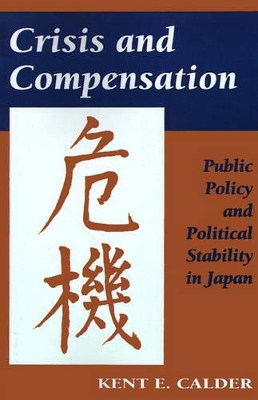Why does Japan, with its efficiency-oriented technocracy, periodically adopt welfare-oriented, economically inefficient domestic policies? In answering this question Kent Calder shows that Japanese policymakers respond to threats to the ruling party's preeminence by extending income compensation, entitlements, and subsidies, with market-oriented retrenchment coming as crisis subsides. "Quite simply the most ambitious and strongly argued interpretation of a key dimension of Japanese political life to appear in English this decade."--David Williams, Japan Times "Historically dense and conceptually rich...[Forces] readers' attention to the domestic underpinnings of Japanese foreign policy."--Donald S. Zagoria, Foreign Affairs "Punctures the myth of Japan Inc. as a cool, rational monolith..."--Kathleen Newland, Millennium "A bold reinterpretation of Japanese politics that will force us to rethink many of our current assumptions and will influence our research agenda."--Steven R. Reed, Journal of Japanese Studies
- ISBN10 0691023387
- ISBN13 9780691023380
- Publish Date 21 February 1991 (first published 21 February 1989)
- Publish Status Active
- Publish Country US
- Imprint Princeton University Press
- Format Paperback (US Trade)
- Pages 584
- Language English
- URL https://press.princeton.edu/titles/4276.html
